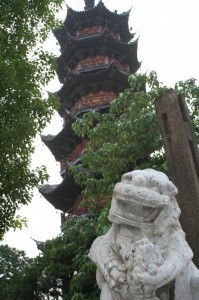The Lunar New Year is upon us and for many international students at Camosun this is the most important and cherished time of year. In Korea, it’s a four-day celebration; in China it lasts for up to 15 days.

Unlike New Year’s in North America, which is really just a glamorized party, Lunar New Year is about spending time with family, respecting your elders, and preparing for a lucky and prosperous year ahead; it’s a festival packed with traditions and beliefs.
“My grandmother would usually wake up in the morning and start cooking lots of dishes for our family reunion dinner,” says Phoebe Tsai, a family and child studies student at Camosun who moved here from Taiwan. “Meanwhile, the rest of us have to do the ‘spring cleaning,’ which is a general house cleaning.”
Cleaning on the days before the new year is believed to wash out the bad luck of the past year to make room for good luck in the year to come. But brooms and dustpans should be put away on the first day of the holiday as to not sweep away any of the new luck.
“During the dinner, the elders would give the younger ‘red packets’ which have ‘good lucky money’ wrapped in little red envelopes,” says Tsai. “After dinner, usually children would go outside and play with firecrackers. Most of us believe that we can get rid of the ill-fortune when the firecrackers explode.”
In China, red symbolizes fire and is believed to drive away bad luck. The crackling of fireworks is also believed to frighten away evil sprits.
This year, the Lunar New Year started on January 23 as we entered into the year of the dragon. The dragon is the most powerful of the Chinese signs, symbolizing ambition, passion, and bravery.
Like all great holidays, food is a huge part of Lunar New Year. A long life, wealth, and good fortune is said to come from dishes such as noodles, oranges, and fish served whole and eaten from head to tail, symbolizing luck from the beginning of the year to the end.
According to Camosun ESL student Insu Kim, respect towards elders and games are also a large part of the festivities.
“We show our respect to older people, wish them love, and wish they live longer with good health,” says Kim. “We usually play some kind of board game. One of them has the Korean name Yut Nori; a very traditional game”
A lot of international students at Camosun are particularly homesick during the holiday celebrations, including Kim. “[I miss] my family and food, especially food,” he says.
With traditions that have been passed down for centuries, the Lunar New Year celebrates strong family ties and love between relatives, for the most part skipping the commercialism seen in most western holidays.
“New Year is a time for family to get together,” says Tsai, “and also to visit relatives and friends.”
